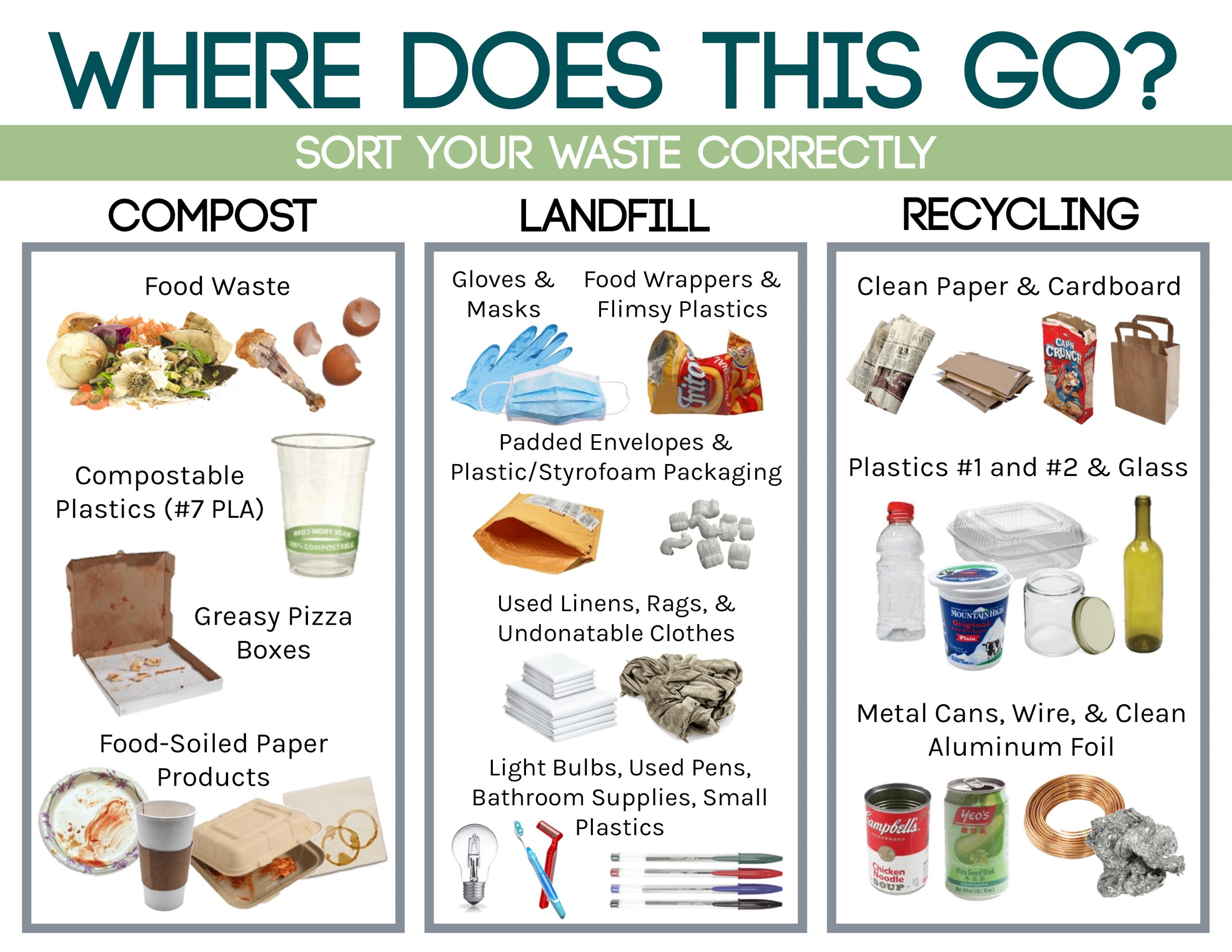Sorting waste correctly takes little effort, but has significant impacts on climate change. When organic waste breaks down in a landfill, it produces methane, a greenhouse gas that is far more harmful than carbon dioxide. Composting allows for this organic material to decompose aerobically, which does not release methane and returns nutrients to the soil for growing food. Learn more about Zero Waste on campus.
UC Berkeley’s Zero Waste Goal: Achieve a 90% landfill diversion rate by 2020.
Our current diversion rate: 54%
Waste Sorting Guidelines:

Compost: food scraps, soiled paper & cardboard, coffee cups, paper napkins, plant material, compostable plastics (PLA #7)
Cans & Bottles Recycling: aluminum cans, clean foil, glass bottles, plastics #1 & #2
Paper Recycling: clean, dry paper & cardboard
Landfill: masks & gloves, flimsy plastics & films, plastic bags, wrappers, plastics #3-7, straws, paper lined with plastic (e.g. tetrapaks, milk cartons, or receipts)
To reduce your waste you can reuse anything from shopping bags, to clothes, to furniture, to cups, cutlery & straws, or containers. By extending the life of these products and reducing your reliance on disposables you can also reduce your carbon footprint.
Looking for standardized signage for you and your roommates? Download and print our signs.
You can also use this map to find zero waste snack and shopping locations across the Bay Area.
